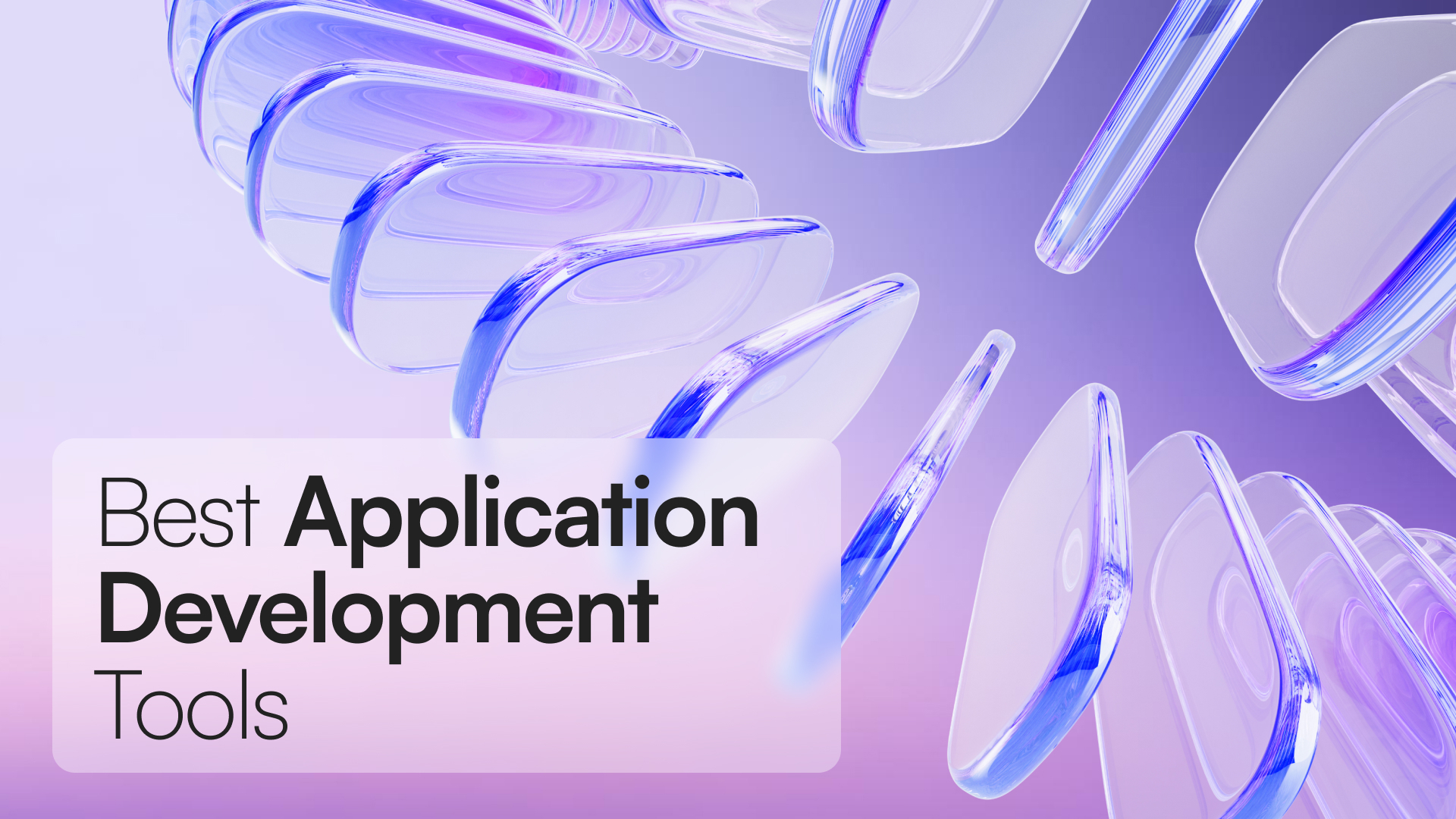Updated February 2026
Introduction
Applied Behavior Analysis (ABA) therapy is an essential treatment for individuals with autism and other developmental disorders. Effective management of ABA therapy requires robust software solutions that streamline data collection, enhance communication, and customize therapy plans. In this blog post, we explore the best ABA therapy management software available in 2026, including Tadabase, CentralReach, Rethink Behavioral Health, Catalyst by Therapy Brands, ABA Team, and DataFinch Technologies. We highlight their key features, benefits, and comparisons to help you choose the right tool for your practice.
The 6 Best ABA Data Collection Software in 2026
Tadabase

At Tadabase, we have designed our software to meet the specific needs of ABA therapy practices, offering a comprehensive suite of tools for data collection, reporting, and practice management. Our experience in developing Tadabase has shown us firsthand how customizable solutions can significantly enhance therapy outcomes.
Key Features:
- Robust Data Collection: Automated tools simplify tracking client progress, reducing errors and saving time.
- Customizable Therapy Plans: Extensive customization options to tailor therapy plans to client needs.
- Integrated Communication Tools: Seamless communication between therapists, caregivers, and other stakeholders.
- Compliance and Security: HIPAA-compliant platform ensuring data security.
Pros:
- Highly customizable to fit unique practice needs
- Strong data security measures
- Responsive and knowledgeable customer support
Cons:
- Initial learning curve for new users, mitigated by comprehensive training resources
In Our Experience:
Tadabase's flexibility and robust feature set have made it a favorite among our clients. Therapists appreciate the ability to customize therapy plans and the ease of integrating with other tools. Our commitment to security ensures that client data is always protected, providing peace of mind for both therapists and families.
CentralReach
CentralReach is another top choice for ABA therapy management, known for its comprehensive suite of tools.
Key Features:
- Robust Data Collection: Automated data collection and analysis tools.
- Customizable Therapy Plans: Extensive customization of therapy plans.
- Integrated Communication Tools: Facilitates smooth communication among therapy teams.
- Compliance and Security: Ensures data security and compliance with healthcare regulations.
Pros:
- Comprehensive data tools
- Strong integration options
- Reliable customer support
Cons:
- Can be expensive for smaller practices
In Our Experience:
CentralReach offers a comprehensive suite of tools but can be more costly compared to other options. It’s a great choice for larger practices needing extensive integration and data management capabilities.
Rethink Behavioral Health
Rethink Behavioral Health provides a user-friendly platform with tools designed specifically for ABA therapy.
Key Features:
- Data Collection and Reporting: Simplified process for collecting and analyzing data.
- Video-Based Training: Video-based training modules for therapists.
- Parent Portal: Allows parents to access and track their child's progress.
- Behavior Tracking: Tools to track and analyze behaviors in real-time.
Pros:
- User-friendly interface
- Excellent parent engagement tools
- Real-time behavior tracking
Cons:
- Limited customization options
In Our Experience:
Rethink Behavioral Health is highly user-friendly and great for practices focusing on parent engagement and real-time tracking but may lack the depth of customization found in other platforms.
Catalyst by Therapy Brands
Catalyst is known for its powerful data collection and management capabilities.
Key Features:
- Automated Data Collection: Customizable data collection options.
- Advanced Reporting: In-depth reporting tools to analyze client progress.
- Mobile Accessibility: Accessible on mobile devices for data entry and analysis on the go.
- Integration: Integrates with other Therapy Brands products for seamless workflow.
Pros:
- Strong data management
- Mobile accessibility
- Seamless integration
Cons:
- User interface can be complex
In Our Experience:
Catalyst excels in data management and mobile accessibility, making it suitable for on-the-go therapists but may have a steeper learning curve due to its complex interface.
ABA Team
ABA Team focuses on providing a collaborative platform for ABA therapy management.
Key Features:
- Collaborative Tools: Team collaboration and communication tools.
- Customizable Plans: Creation and adjustment of personalized therapy plans.
- Progress Tracking: Detailed progress tracking and reporting features.
- User-Friendly Interface: Intuitive and easy to navigate.
Pros:
- Excellent collaboration tools
- Easy to use
- Detailed progress tracking
Cons:
- Limited advanced features
In Our Experience:
ABA Team is perfect for practices emphasizing team collaboration and ease of use, though it may lack some advanced features needed for more complex needs.
DataFinch Technologies
DataFinch Technologies provides a comprehensive suite of tools designed to support ABA therapy management.
Key Features:
- Data Collection and Analysis: Robust tools for data collection and analysis.
- Custom Reports: Creation of custom reports tailored to specific needs.
- Parent and Caregiver Access: Provides access for parents and caregivers to track progress.
- Secure and Compliant: Ensures data security and compliance with industry standards.
Pros:
- Customizable reporting
- Parent and caregiver access
- Strong data security
Cons:
- Can be expensive
In Our Experience:
DataFinch Technologies is excellent for practices needing customizable reporting and strong security, though it may be more expensive than other options.
What is Data Collection in ABA Therapy?
Data collection is a core component of Applied Behavior Analysis (ABA) therapy, serving as the foundation for decision-making and treatment planning. In ABA therapy, data collection involves recording observable behaviors, progress, and outcomes in a systematic and objective manner. The data collected helps therapists assess the effectiveness of interventions, track skill development, and make informed adjustments to therapy plans.
Why is Data Collection Important in ABA?
Data collection ensures that therapy is evidence-based and tailored to the unique needs of each client. It provides concrete information on what interventions are working, what areas need more focus, and how therapy can be improved over time. Without accurate data, therapy may lack direction and miss opportunities for progress.
Types of Data Collected in ABA
- Frequency Data: Tracks how often a behavior occurs within a specific time period.
- Duration Data: Measures how long a behavior lasts from start to finish.
- Latency Data: Records the time it takes for a behavior to start after a specific prompt.
- ABC Data (Antecedent-Behavior-Consequence): Documents what happens before, during, and after a behavior to identify patterns.
How ABA Management Software Improves Data Collection
Using ABA management software like Tadabase streamlines the entire data collection process by automating the recording, analyzing, and reporting of behavioral data. This reduces the risk of human error and allows for real-time adjustments to therapy plans based on objective data. Key features like customizable data collection forms, integrated communication tools, and compliance with healthcare regulations make the data collection process more efficient and effective.
Frequently Asked Questions
Why is ABA therapy important?
ABA therapy is critical for individuals with autism and other developmental disorders as it helps improve communication, social skills, and behavior through evidence-based techniques.
How does ABA therapy management software help therapists?
ABA therapy management software automates data collection, simplifies reporting, enhances communication, and allows for the customization of therapy plans, making the management process more efficient and effective.
What should I look for in ABA therapy management software?
Look for features like robust data collection tools, customizable therapy plans, integrated communication tools, compliance with healthcare regulations, and user-friendly interfaces.
How does Tadabase compare to other ABA therapy management software?
Tadabase offers a comprehensive solution with robust data collection, customizable therapy plans, integrated communication tools, and compliance with healthcare regulations, making it a top choice for ABA therapy management.
Can ABA therapy management software improve therapy outcomes?
Yes, by streamlining administrative tasks, enhancing communication, and providing data-driven insights, ABA therapy management software can lead to more effective and personalized therapy, ultimately improving outcomes.
Conclusion
Choosing the right ABA therapy management software can significantly enhance the effectiveness of your practice. Tadabase, along with other top solutions, offers unique features and benefits tailored to the needs of ABA practitioners. Whether you prioritize data collection, customization, or team collaboration, there is a solution that can meet your requirements.
For more detailed information on how Tadabase can enhance your ABA therapy practice, check out our comprehensive guide on the topic. Also, visit our ABA Therapy Management landing page for additional resources and solutions.






